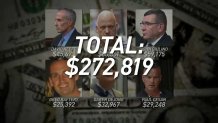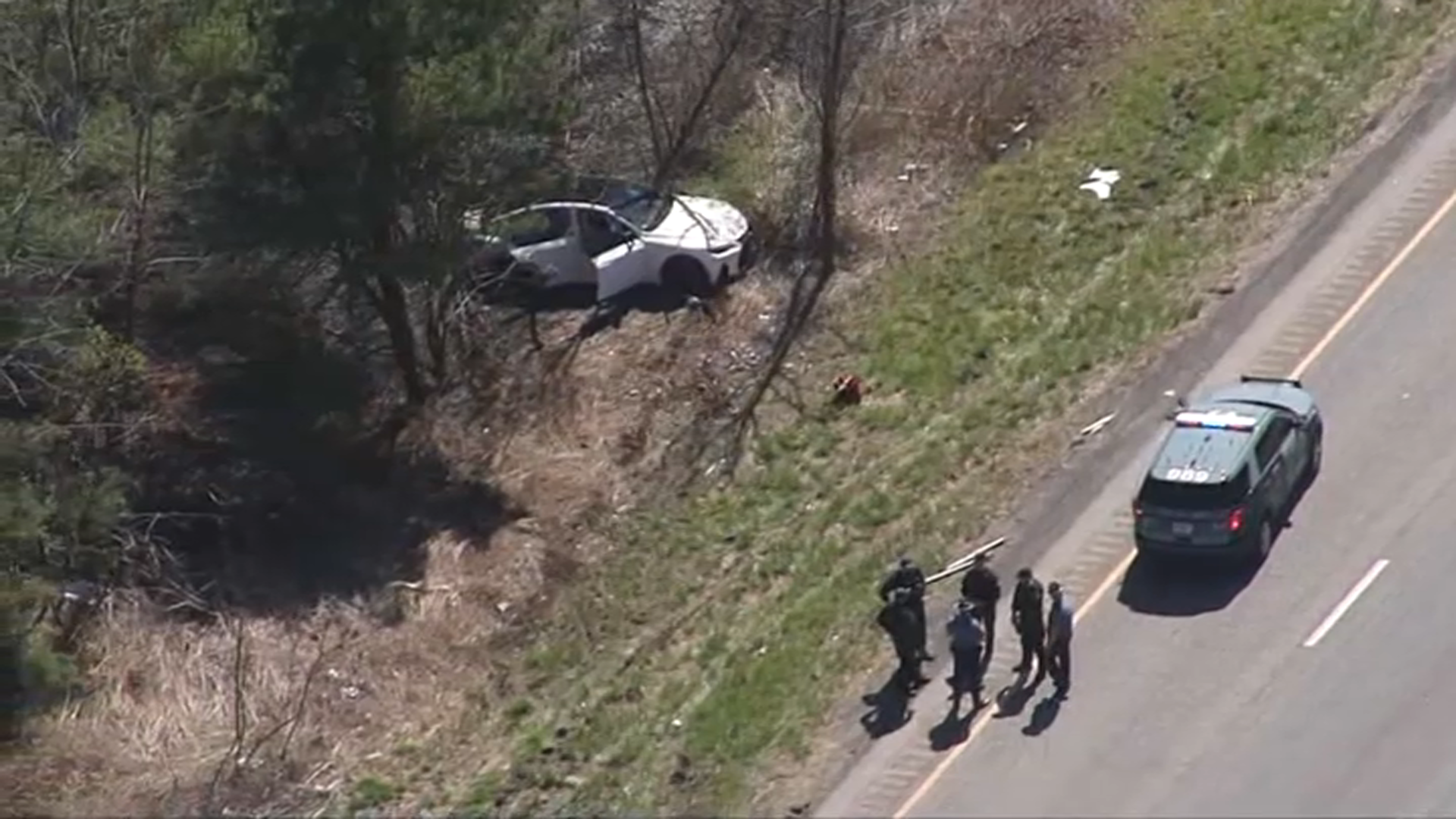What to Know
- A state lawmaker is proposing freezing payouts for accrued sick time to employees who retire while under criminal or internal investigation.
- Senate Minority Leader Bruce Tarr says payouts should be suspended until the due process plays out and employees are allowed to cash out.
- The proposal comes after six former Massachusetts state troopers collected $272,819 in combined payouts for unused vacation and sick time.
A Massachusetts lawmaker is taking action in the wake of an NBC10 Boston Investigators report, which showed how state troopers caught up in the overtime scandal cashed in on a taxpayer-funded perk on their way out the door.
Senate Minority Leader Bruce Tarr, a Gloucester Republican, is proposing freezing payouts for accrued sick time to employees who retire while under criminal or internal investigation.
Last October, the NBC10 Boston Investigators revealed how six former troopers facing federal or state charges for stealing public funds collected $272,819 in combined payouts for unused vacation and sick time.

One retired trooper, David Wilson, cashed out more than 10 weeks of vacation and 418 sick days. His check from state taxpayers was $80,361.84.
Wilson has already agreed to plead guilty to federal charges of being paid for overtime he never worked. The former lieutenant is also facing a similar state case being prosecuted by the Massachusetts Attorney General’s Office.
“I watched your report and was very concerned,” Tarr told NBC10 Boston Investigator Ryan Kath. “I asked the question I’m sure everyone who watched the report asked: How could this be allowed to happen on autopilot with no recognition of the facts and circumstances?”
Tarr believes payouts should be suspended until the due process plays out and employees are allowed to cash out accrued sick time. Under current rules, if employees are terminated, they do not receive those sick time payouts.

As part of his legislation, Tarr is also proposing capping accrued sick time at 1,000 hours for employees working in government jobs or public higher education.
Local
In-depth news coverage of the Greater Boston Area.
On Wednesday at the Statehouse, Gov. Charlie Baker proposed a similar cap when he announced his budget priorities.
“Governor Baker proposed a bill to limit excessive sick time payouts and save taxpayer dollars,” spokesman Brendan Moss told NBC10 Boston.
As reported last October, Inspector General Glenn Cunha estimates there are more than 10,000 state workers who’ve banked more than 1,000 sick hours. Upon retirement, those employees are allowed to cash out 20 percent of that amount.
Cunnha crunched the numbers and concluded taxpayers are on the hook for a staggering $558 million of unused vacation and sick time liability.

Because of the overtime scandal and other controversies, state payroll records show the rush to retire at Massachusetts State Police ballooned buyouts to $5.9 million last year. That’s a $2 million increase from the previous year.
Unions representing government employees argue that while outrageous payouts get the headlines, the average checks to most retiring state workers are very modest.
Jim Durkin is the legislative director with AFSCME Council 93, which represents about 18,000 Massachusetts state and higher education employees.
He said the current benefit prevents public employees from burning sick days and costing local governments more money in overtime expenses. Upon retirement, Durkin said the payouts are used as “bridge income” until workers begin to receive pension checks.
“These are contractually-negotiated benefits and we firmly believe any changes should come at the collective bargaining table,” Durkin said.
However, Tarr believes a cap is a reasonable compromise for taxpayers who enjoy no such perk in their private sector jobs.
“This is a tool intended to promote a healthy workplace. It’s not to create a retirement benefit,” he said.
Ryan Kath can be reached at ryan.kath@nbcuni.com. You can also follow him on Twitter or connect with him Facebook.



